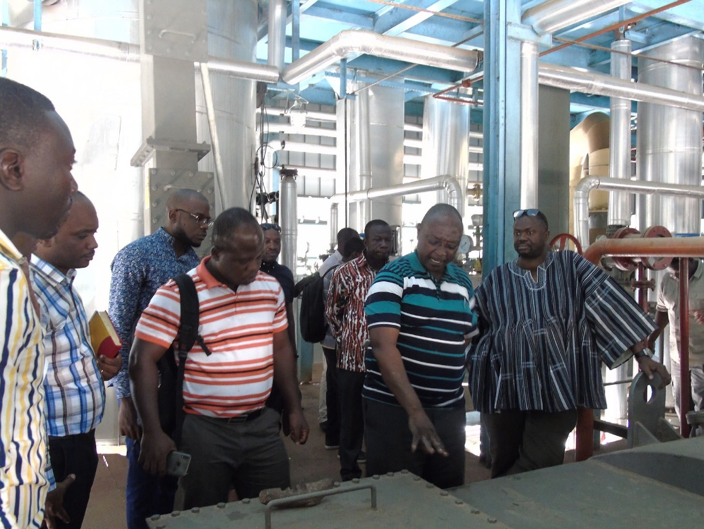KEEP NEWS
KNUST and Association of Ghana Industries Organize Industrial Visit to Vester Oil Mills Limited
Published: 24 Jan 2020

The College of Engineering, KNUST and the Association of Ghana Industries (AGI) have jointly organized an industrial visit for academic and research staff of the College. The objective of the visit was to bring academia closer to industry and in the process have a better and deeper understanding of industrial operations and existing challenges. It is also to afford academia the opportunity to discuss concrete ways of (re-)directing some of its intellectual resources towards addressing industry problems and making them more competitive.
The visit took place on 14th January 2020 and comprised staff from various Departments of the College of Engineering, notably, Departments of Mechanical Engineering, Chemical Engineering, Agricultural & Biosystems Engineering, The Brew-Hammond Energy Centre and the Centre for Business Development (a Unit within the Vice Chancellor’s Office). Additionally, six (6) postgraduate students pursuing various MPhil and PhD degrees joined the visit. The group was received at the premises of the Vester Oil Mills, conducted round the facilities by Mr. Sefah-Boakye, a management team member of the company.
The KNUST team was briefed on the operations of the company and some of the challenges that it currently faces and for which it is seeking solutions. The Managing Director, Mr. Kwasi Nyamekye, who is also Vice President of the AGI in the Ashanti, Bono, Bono East and Ahafo regions, was pleased with the visit and looked forward to a stronger partnership with academia.
The College of Engineering will be working with Vester Oil to improve the efficiency of the plant. Specific areas of focus are the use of alternative fuel for boiler operations, reduction of hexane consumption and reduction of electricity bills. Vester Oil Mills is a Ghanaian-owned company which processes soybeans into edible oils and animal feed and supplies both local and export markets. The visit was supported by the KNUST Engineering Education Project (KEEP). KEEP is a Government of Ghana and World Bank initiative that seeks to improve the development impact of engineering education, particularly at the postgraduate level.
